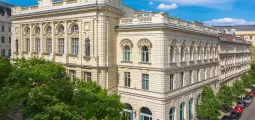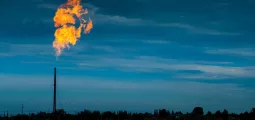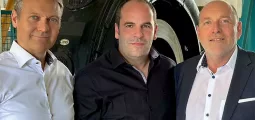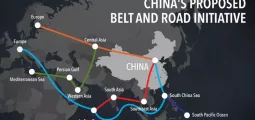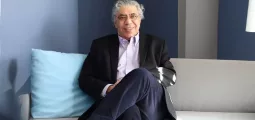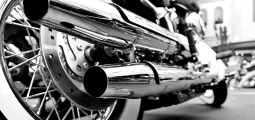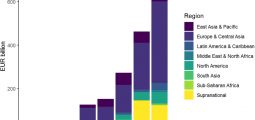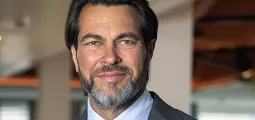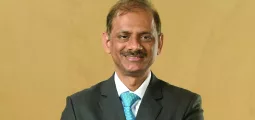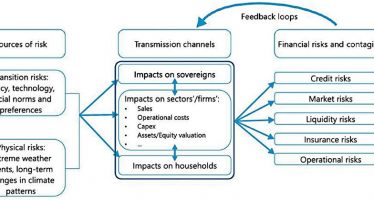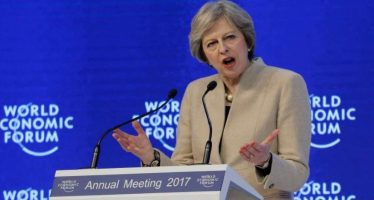How to Tame an Unruly Bear

Natural Gas Flare
You heed Teddy’s advice: Speak softly and carry a big stick.
That’s how a bear is brought to its senses. Hardly rocket science. With his simple, yet effective approach to foreign policy, Theodore Roosevelt (1858-1919) – the 26th US president – laid the foundation of what was to become the world’s premier superpower.
Contrast this, if you will, to the Right Honourable Neville Chamberlain (1869-1940) – the endearing, yet bumbling British prime minister who understood only half of Teddy’s equation: He mastered the speaking softly part, but failed to carry a stick of any kind. Mr Chamberlain readily acceded to a strongman’s demands, took him at his word and lived to regret his folly.
Just as Adolf Hitler’s thirst for territorial gain was not quenched by the absorption in 1938 of Czechoslovakia’s Sudetenland – home to a German-speaking population – into the Third Reich, Mr Vladimir Putin will not stop his expansionist policies now that the Crimea – home to a Russian-speaking population – has been wrenched from the Ukraine.
While peace in our time is unlikely to be disturbed, this does not imply that the bear should be allowed to run amok.
Interestingly enough, the West – much upset over Russia’s assertive ways – already carries the requisite stick. And it’s big too.
“Europe’s dependency on Russian natural gas is much overstated.”
For all its bluster and all the millionaires it seems to spout, Russia is an economic wimp. Its national output amounts to barely €1.4tn. The country’s exports are less than those of The Netherlands. Its gross domestic product amounts to only 80% of France’s. The European Union represents fully eight times the economic weight of Russia. Add to that the US economy, and Russia disappears from the screen altogether.
The West is being bullied by a country that may be geographically quite impressive, but is rather underwhelming when economic power is considered. This is something that Mr Putin’s attention must be urgently drawn to. Europe’s dependency on Russian natural gas is much overstated. In fact, the EU can readily do without that supply.
Natural gas fields in Norway and The Netherlands can take up any slack. The Trans Mediterranean Pipeline – connecting Algeria to both Italy and Spain – can easily be reinvigorated. In Rotterdam, the €3bn Gas Access to Europe (GATE) terminal has just commenced operations. This import terminal is set to become the biggest of its kind in the world and has already started to pump natural gas received from LNG (liquefied natural gas) tankers into the European pipeline network. Moreover, natural gas stocks in Europe are at an all-time high as a result of the mild winter.
There is little need to appease Mr Putin. Shut off Russia’s natural gas deliveries; stop trading with the country; and freeze the Russian kleptocracy’s assets esconded in Europe and elsewhere, currently estimated at €420bn.
Once the stick is properly in place, it is time to tell the Russians that we do love them and – even more importantly – understand them as well. It is tough being so large and puny at the same time. Life, after losing an empire, is no cakewalk. Ask the Brits.
Also, the Ukraine was in fact not very grateful for all that energy supplied at neighbourly rates. Europe too could have been a tiny bit more understanding of Russia’s anxieties and insecurities. With the benefit of hindsight, the European Union should probably have refrained from courting the – none too pristine – powers that be in Kiev.
The West must understand, and make some allowances for, Russia’s collective mind set of which Mr Putin is but the embodiment. This, however, does not at all imply that the West should allow Russia to engage in land grabs, flimsily justified by demographic realities or democratic farces running on scripts inspired by North Korean practices.
Mr Putin’s utterances that his ambitions do not extend to beyond the Crimea are not to be believed. Moldova – with its break-away Transnistria province – might be next. Georgia, Armenia and even the Baltic states and Poland are feeling the heat.
If the West is to ensure peace in our time, it must find ways to engage with the Kremlin. The man in charge here understands power politics as few others do. Speaking loudly without carrying Teddy’s stick is not helpful, nor smart. It will not fool Mr Putin.
The learning curve is going to be steep, but must be mastered fast. Once Mr Putin realises that he reigns over a country of little economic consequence, he will eventually be brought to his senses.
This does not necessarily entail profound changes to the realities he created by the threat of force in the Crimea. It’s too late for that already. However, faces need saving and Russia needs to tone down – or at least be seen to do so.
Europe must tame this unruly bear. If it fails to do so, the bear will bite again. It will keep on biting and nibbling until patience runs out and reason is lost at which point we will not have peace in our time.
You may have an interest in also reading…
Christopher Colford, World Bank: Competitive Cities Can Meet the Challenge of Job Creation
Focusing policies on competitive industries can provide jobs for the impoverished, hungry, restive urban millions As magnets for talent and
Otaviano Canuto on Central Banks and Climate Change: Turning Black Swans Into Green
There are three possible motivations for the engagement by central banks with climate change: financial risks, macro-economic impacts, and mitigation/adaptation
Davos: Till We Meet Again – Bankers Packing Up
Dutch Finance Minister and President of the Eurogroup Jeroen Dijsselbloem is worried that the increased insularity of thought displayed by


